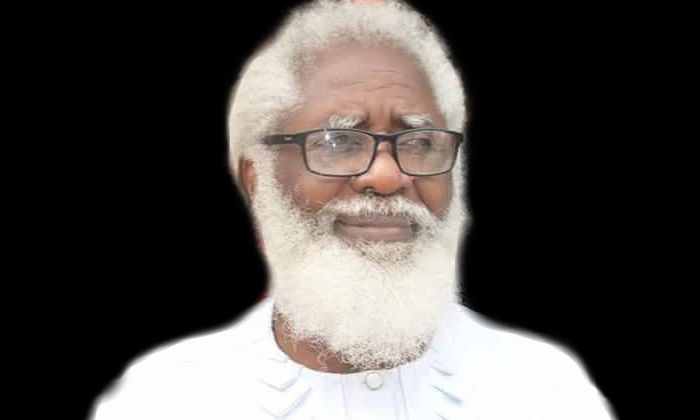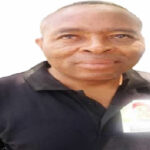
A former Nigerian Ambassador to Philippines, Yemi Farounbi, shares with AYOOLA OLASUPO his assessment of the regime of the President, Major General Muhammadu Buhari (retd.) and what he expects the next president to do differently
How would you rate the administration of President Muhammadu Buhari’s performance in terms of diplomacy and foreign relations?
As a matter of fact, President Buhari appears to be the most travelled president we have had. He even travelled more than former President Olusegun Obasanjo that late Gani Fawehinmi complained about. He (Buhari) tried to build a great work relationship for Nigeria with the Economic Community of West African States and that resulted in ECOWAS relying on the Nigerian military during insurgency in Mali, Burkina Faso among others. I think he also maintains a diplomatic relationship with a lot of developed states in Africa. He may visit the United States but perhaps it doesn’t make much impact. We therefore see no benefit of the diplomatic improved relationship. Our boundary is open to any person that wants to come in and that has resulted in an influx of a lot of non-Nigerians that have become problems in terms of economy and more importantly security issues. He visited the United Kingdom and said Nigerian youths are indolent and a lot of those speeches that didn’t really promote the image of the country. However, we thank God he maintains a stable relationship in diplomatic terms.
How would rate his efforts in promoting the country’s interest and values at the international stage?
The fact that a few Nigerians got international appointments is part of it because you don’t get international appointments without the sponsorship of your own government. I will start with Dr Akinwumi Adesina, the President of the African Development Bank; Dr Ngozi Okonjo-Iweala, the Director-General of the World Trade Organisation; Mrs Amina Mohammed, a former minister who became an Assistant Secretary General of the United Nations. You can see evidence that under him there are Nigerians who secured top international appointments. Of course, that wouldn’t have happened without the diplomatic support, campaign and bargain by the Nigerian government. However, most countries look forward to foreign direct investments, but we didn’t have much to show in terms of FDI because a lot of what we have had to be based on loans and not our resources. A very active diplomatic activity probably could have secured us more FDIs in the areas of energy, roads, railway construction and human capital development. We didn’t exactly get investment, we got loans instead.
How would you describe the response of the Buhari regime to emergencies like the extraction of Nigerians when war broke out in Ukraine and Sudan?
I wouldn’t rate us high in that. We didn’t react quickly during the Russian invasion of Ukraine and we had problems extracting Nigerians from there when other countries had successfully moved their citizens away from there. We had the problem of locating where our citizens were and it is sad that just a year after that we still had to repeat the same procedure when extracting our citizens from Sudan. It is unfortunate because for many years Nigeria was critical to the resolution of the crisis in Sudan, so we cannot claim that we do not have the knowledge of the deteriorating situation in Sudan. So, when the crisis deteriorated, it ought not to have caught Nigeria unawares at all. We ought to have been more informed than the United States or the European Union that successfully extracted their citizens but we did as if we were asleep or unaware or that the lives of the Nigerians in those countries were not critical to us.
What role did the President play in promoting global peace and security and how successful was his administration in this regard?
He has not been particularly very active in the international space compared to how Obasanjo was during his time. He therefore cannot be credited for spearheading any particular diplomatic thing that attracted the support of many other countries. I think he maintains a stable relationship without being in the forefront or ‘backfront’. We were always in the midstream of events and activity. There is nothing special that we can be credited for in that regard.
What was the approach of the President to trade and economic relations with other countries, and how did it affect the country’s economy?
The one thing we must credit him for is that a Nigerian became the Director-General of the World Trade Organisation. He took it up from the start, even though we are still waiting to see the benefit of that position to Nigeria in terms of trade and economy. The mind reading of President Buhari does not give his players instructions so everybody appears, as it were, to be on his own and if you look at those ministers, they were not particularly exceptional and proactive in terms of achieving positive things for Nigeria and it was because the President was neutral or on the fence. There wasn’t much we could claim to have had and it is a pity.
In what ways do you think the President has worked to promote the country’s culture and values at the international stage?
In terms of promoting our culture, it is difficult to say specifically this is what has been done. Of course, the government shares in the glory of what our musicians have done. They were not direct products of government efforts but there is no way the government will not get part of the credit either because of the freedom they have or the facilitating environment. Our musicians, Nollywood artistes and our citizens in sports are doing very well at the international scene but there is no way the government will not share part of the glory even when you might be able to identify specifically what the government has done to promote it. In terms of foreign policy, in diplomacy we say that foreign policies are extensions of domestic policies. It became difficult at one time to identify our own domestic policy in terms of the economy, culture and other aspects of our lives. Take the cashless policy and for instance; you would ask yourself what did it intend to achieve and did it achieve it other than reducing Nigerians to a situation of not having cash to spend? We could not fathom the reason behind such a policy. So, because our domestic policies are not well articulated, we have problems with our foreign policy too because we wouldn’t know where to come in to achieve and where to come in to assist.
Looking ahead, what are the key priorities and expectations from the incoming administration of Tinubu regarding foreign affairs?
I think the first major problem that the incoming government faces is how to build trust among and within Nigeria, and how to reconcile ourselves that we are now one Nigeria and we belong to the same country. There have been so much divisions and sectionalisation in the country especially in the last one year that we are struggling to ensure we have a country called Nigeria and there are people called Nigerians. This will assist how the foreign countries will begin to view Nigeria, because as of now, the issue of don’t visit this place, don’t go that place; those are not in the best interest of the country and those do not attract investors and foreign companies to bring their money. We must be able to establish a measure of trust so that we can all feel at ease. That is a very major problem the incoming government must look at because it is not physical but emotional, ideological and a matter of human passion, trust and existence. Next to that is to secure the people. When they have been made to love themselves then you must secure them because you cannot be respected outside if you cannot manage your own affairs.





